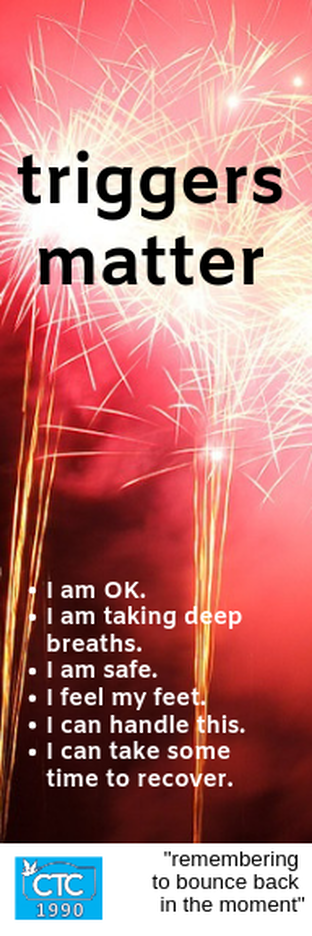| What is a trigger? Why are some moments so hard to recover from? A trigger is a stimuli that pulls us back into a time of danger.
Our triggers do matter.
|
1. Understand the nature of triggers. Know that triggers are not unusual. Most people have had very hard stuff happen to them.
2. Identify, if possible, your triggers. Write them down. Track them down.
3. Avoid the triggers (if possible).
4. Make a plan to handle your response, should you be triggered. For example,
- take a break (in whatever way you can)
- calm yourself through interventions "I am OK, I am breathing deeply, I can handle this, etc." (see the FREE bookmark above)
.5. Seek counselling to decrease the number of triggers, and your response to a trigger.
And what do we do after being triggered?
a. calm yourself (knowing it is longer and harder than other typical emotional responses)
b. practice self-compassion (see May 2019 post)
c. apologize, if appropriate to the circumstance. Help the student(s) understand that overreaction is not the best response, and you will handle that for the next time.
d. Address any challenging behavior on the part of the student.
Finally, be kind to yourself. Triggers matter. You are bigger than your triggers. And you matter more!
